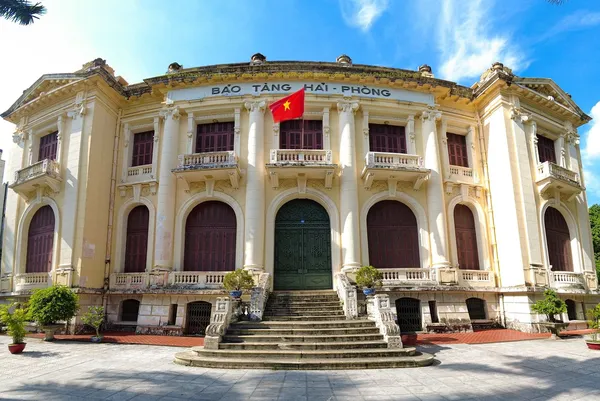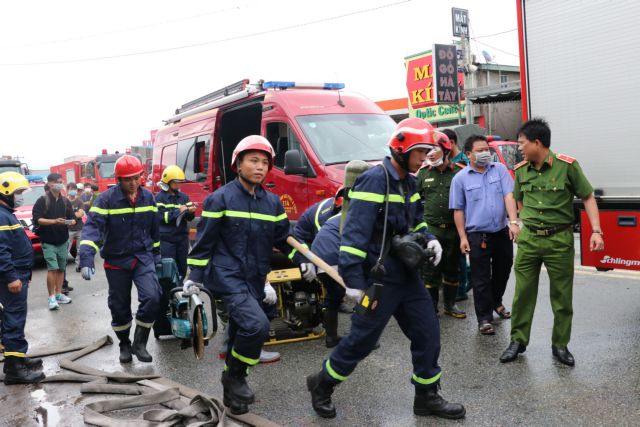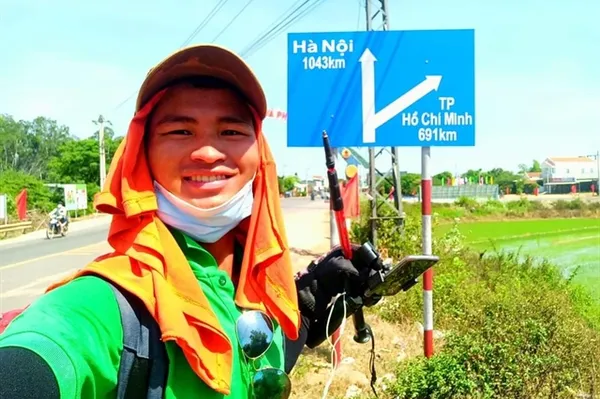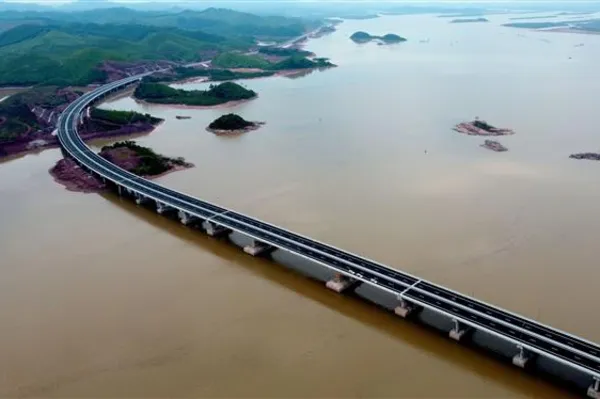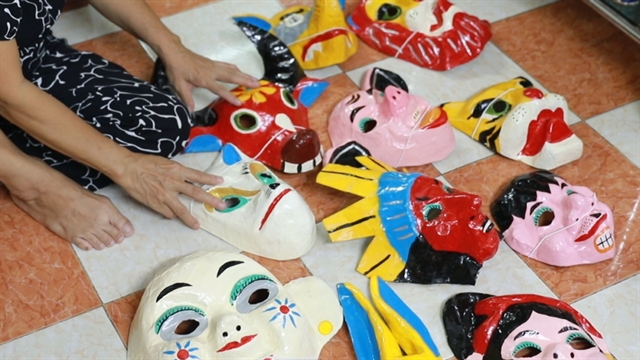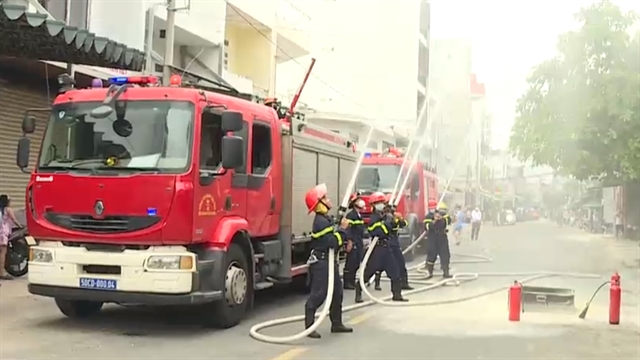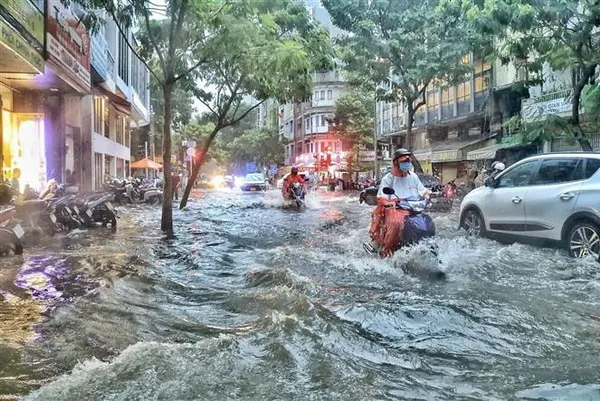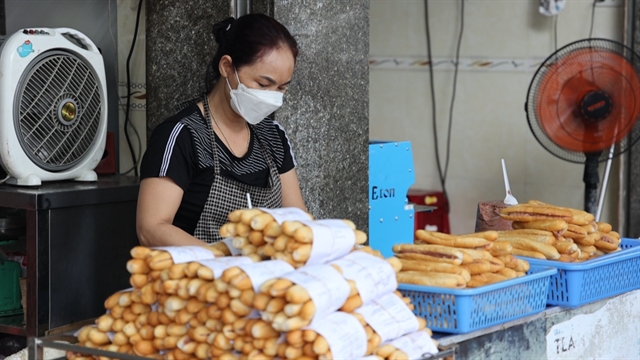
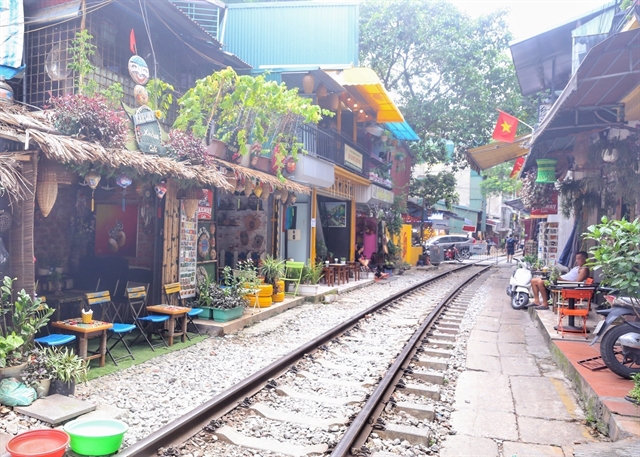 |
| Coffee shops on the 'train street' are empty after the closure order. — VNA/VNS Photo |
HÀ NỘI — The closure order of coffee shops along the railway line in Hà Nội has made lots of tourists and business households disappointed with some suggesting solutions to develop tourism while ensuring safety.
Dr. Đinh Trọng Thịnh from the Academy of Finance said railway street was a famous and unique tourist spot in the city, attracting domestic and foreign visitors.
He said if there were solutions to ensure the safety of business households and tourists who take photos on the line, the coffee shops should open.
There needs to be planning and coordination between business households and local authorities so that households can still run their businesses, and at the same time safety of railway operations and tourists are still ensured, he told the Voice of Vietnam (VOV).
Lawyer Đặng Văn Cường from Hà Nội Bar Association said under railway safety laws and regulations, the train line on the street in Hà Nội had not met railway safety conditions and railway accidents can happen at any time. According to regulations, train corridor width in urban areas must be at least three metres far from each side. The business area must not encroach on the corridor.
According to a report made by the People’s Committee of Hàng Bông Ward, there are 15 business households running coffee shops along the train line. Only four follow safety regulations and have a business licence, the Vietnam Television cited.
.JPG) |
| Tourists crowded at the entrance into the train street after barriers were put up. VNS Photo Sean Nolan |
Starting this week, tourists arriving at these spots have been turned away as barriers and signs warning of dangerous areas are put up and local police officers are patrolling.
On September 17, the Hoàn Kiếm District authorities continued to patrol the areas and suspend operations on all coffee shops facing the train line.
Lawyer Cường said: “The encroachment of railway line, if causing serious consequences, will be subjected to criminal fines. From the law perspective, business households opening coffee shops along the railway is not legal.”
It is definitely illegal to run businesses in the train corridor. Putting tables and chairs and encroaching the corridor might face administrative coercive measures, he said.
However, when handling these cases, the authorities need to consider historical and cultural factors. The train street in Hà Nội has become a tourism spot because it is rare to find a place with coffee shops right next to the railway line. This is a historical issue and the households have been doing coffee business there for many years, he said.
Responding to the idea that instead of abolishing a famous tourist destination, local authorities should make a proper plan, the lawyer said authorities needed to consider and evaluate the problem from many angles, on the basis of determining the land use process and construction characteristics, he said.
He suggested two options. One is to move the train line to another place and to replan the railway to keep that street as a tourism spot. The second is to maintain the railway and relocate coffee shops.
Hoàng Nhân Chính, general secretary of the Vietnam Tourism Advisory Board, suggested local authorities pilot the opening and closing times of coffee shops. Tourists on the street must abide by specific regulations while business households must make a commitment to following a code of conduct.
It’s simple to ban shops on the street, but Hà Nội will lose the opportunity to have a unique tourism product while local people are deprived of an opportunity to improve their income, he told Dân Trí (Intellectual) newspaper.
Nguyễn Tiến Đạt, director of AZA Travel agency, said: “We can erect barriers in front of coffee shops. The shop owners must install warning lights. When the train is about to arrive, these lights will sound an alarm and the barriers will close.”
Visitors should only be allowed to take photos behind these fences. To ensure safety, the shops are not allowed to sell alcohol. Any shop that violates will be fined and ordered to close, he said.
He said many countries had the same tourism model as the train street and they invest a lot of money to create unique check-in points. It is important to harmonise sustainable tourism development and safety.
Đạt said the train street was not only potential as a check-in spot but can attract tourists by promoting train tours such as Hà Nội-Lào Cai, bringing profits to the railway sector. — VNS
